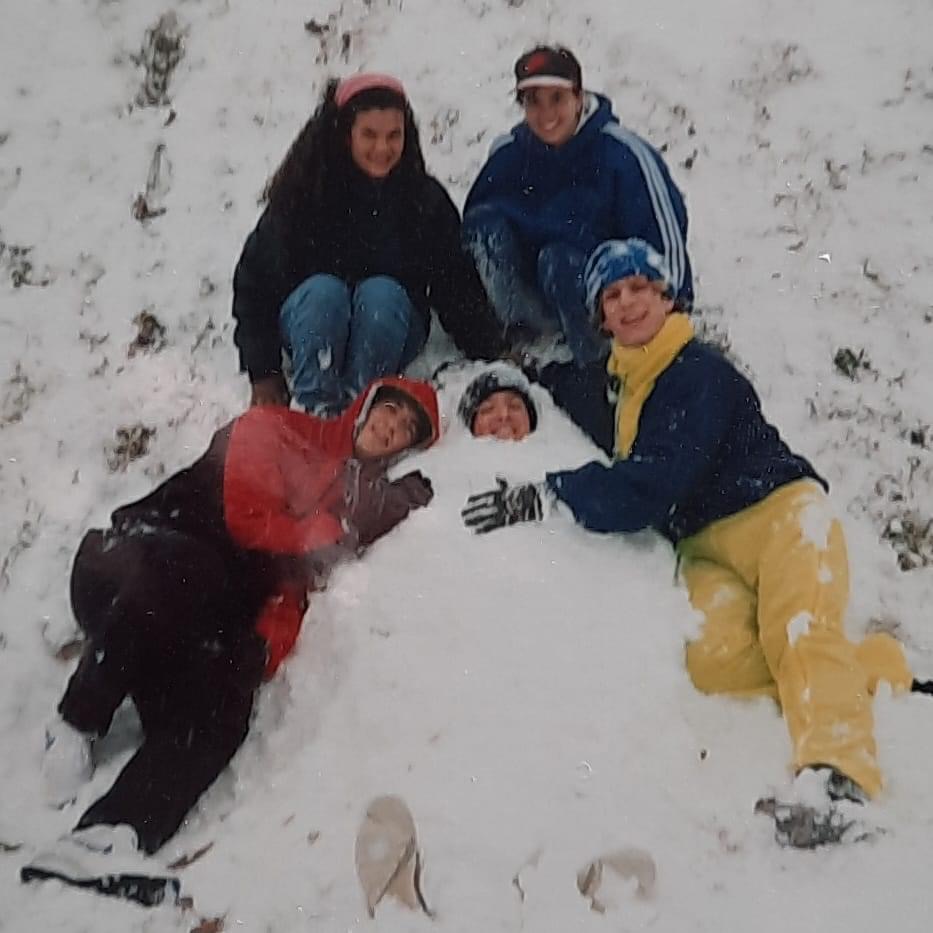Written by: Samantha Burgess, Assistant Editor
“Not again God. This hurt is all too familiar. Why him? I don’t want another person I love to forget me, to forget themselves, to become a shell of the person they once were, a stranger in their own body.”
These were the thoughts running through my mind as I sat by my father. He’d just returned from the hospital, where my grandfather was. The doctors had performed a psych evaluation. With a grim expression, my father told me that my grandfather was diagnosed with Alzheimer’s. Emotions swelled: fear, anger, depression. I’d already lost my grandma on my mother’s side to Alzheimer’s when I was 11.
I knew what this diagnosis meant.
The first warning signs of Alzheimer’s, a type of dementia, are a subtle demon. It may start with something as simple as misplacing your keys. But then you might forget an appointment or the name of someone you just met. You may have to get someone to repeat something they’d just told you, which might annoy them because they assume you weren’t listening, when really you just couldn’t remember.
My grandma showed signs when she forgot her way home from church. I remember my mom being worried that night, as she hadn’t received the usual call from my grandma saying she had made it home safe. An hour later, grandma called to say she was lost. My mom and I found her 30 minutes off the path she usually took. That night grandma handed us her keys and said she didn’t want to drive anymore.
The first sign for my grandfather was similar. As a ninety-year-old man with neuropathy, he needed both my father and I to constantly visit and help him around the house. I remember coming into the kitchen and seeing him on the phone with a friend. He was upset at his doctor and ranting to her about it. I said hello as usual and hugged him. He turned to me with a confused look and told the person on the phone, “hold on my… my granddaughter… my granddaughter…” He set down the phone and said to me, “Why I’m so upset, I forgot your name.” “Samantha,” I reminded him. “Oh, right, of course, I knew that, silly me.” A pang of foreboding shot through me after that interaction, but I pushed it away, thinking it was just his old age.
In the middle stage of Alzheimer’s, symptoms are more obvious. You begin to forget moments in your life such as where you grew up. Or the mind could revert from its present state and convince you that you are still a young child. You might find yourself having issues making it to the bathroom or choosing what clothes to wear. You become moody and withdrawn, sometimes even violent, but don’t remember why. This particular symptom is common at night and called “sundowning.”
There was a particular night when my grandma called late and said she needed help. My mother and I found her agitated, repeatedly saying she was in pain. We took her to the hospital and the doctors assumed it was a symptom of the cancer she’d already been diagnosed with. Later we’d discover it was sundown syndrome, a symptom of Alzheimer’s. She eventually had to be put in a nursing home for better care.
My grandfather shows similar signs of sundowning. Because of his declining health, he’s now in assisted living where he can receive better care. There was one night he started yelling at the nurses to help him, but he couldn’t tell them why. Assuming it was his neuropathy, the nurses took him to the hospital. Once the doctors at the hospital got him some pain meds, he calmed down and everything seemed alright. But then at night he became increasingly violent and confused. He threw things at the nurses and cursed, he asked to be taken back to his family in Fort Payne, Ala. even though it’s been a long time since he’s lived there. After a psychological evaluation the doctors diagnosed him with Alzheimer’s. Now that he’s back in the assisted living home, he requires constant attention and sedation at night.
The final stage of Alzheimer’s is the most debilitating. In this stage you have an increasing loss of communication, and you become unable to walk or take care of yourself. You lose awareness of your surroundings and become vulnerable to infection.
In my grandma’s last days, she spent most of her time in bed. It got to the point where we’d talk to her or read Scripture with no response. On the night that she passed, my solace was that she was now with Christ, free of the torment of both Alzheimer’s and cancer. While my grandfather isn’t in the late stages yet, they are inevitable as there’s currently no cure for Alzheimer’s. But I know that even when he forgets, my family won’t. I also know that when he goes to be with the Lord, all those memories he cherishes will come flooding back and he will be restored.
My advice, having two loved ones with Alzheimer’s, is cherish the time you have now. Write down your memories with them so they won’t be forgotten. Most importantly, don’t doubt any symptom, no matter how small. Every 65 seconds someone in the world develop Alzheimer’s, you never know when it may be you or someone you know. So be aware of the warning signs and get assessed if they show in your life. While there is currently no cure, I believe if it’s God’s will there can be. The best we can do is be aware, comfort others and donate to further research.
 Samantha Burgess is a junior majoring in communication with an emphasis in digital media and is an assistant editor for the Triangle.
Samantha Burgess is a junior majoring in communication with an emphasis in digital media and is an assistant editor for the Triangle.



